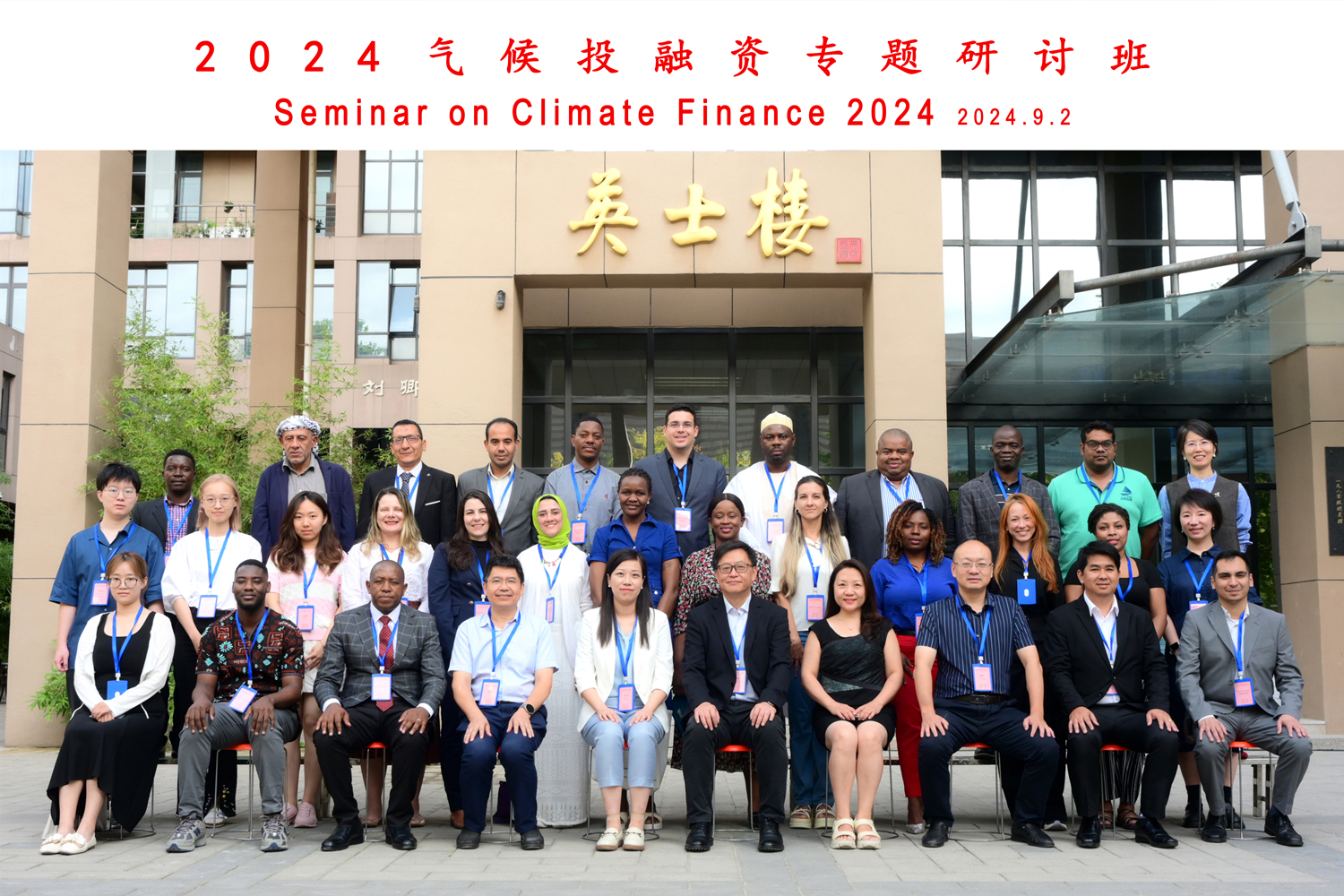On 2 September,the Seminar on Climate Finance 2024 was officially convened in Beijing. This training is sponsored by the Ministry of Ecology and Environment (MEE), and organized by the Institute of Energy, Environment and Economy of Tsinghua University (3E), the China Carbon Neutrality Initiative (CCNI) project, the China-Latin America Joint Laboratory for Clean Energy and Climate Change, the China-Brazil Center for Climate Change and Energy Technology Innovation (CCBCE) and the Wuxi Research Institute of Applied Technologies of Tsinghua University.
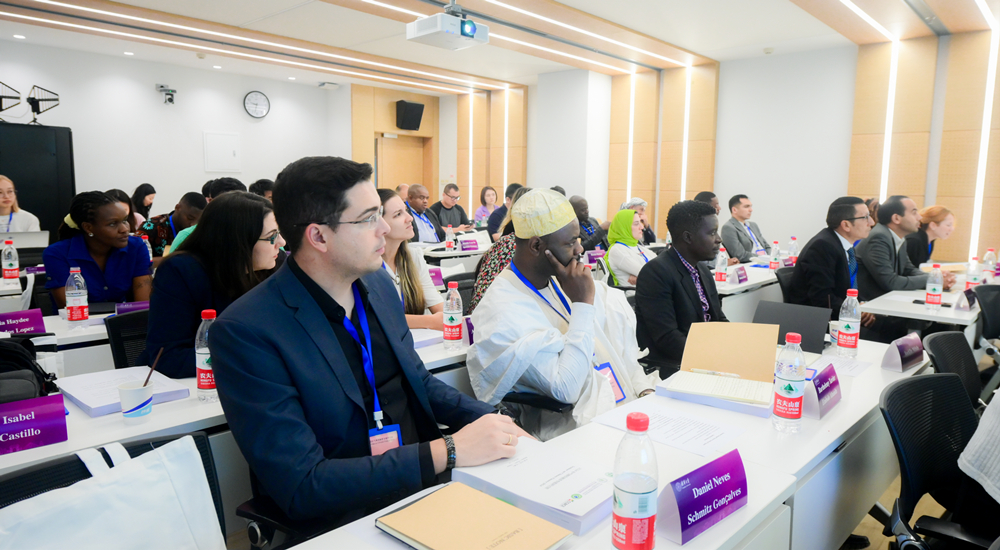
The seminar brought together nearly 30 officials, experts and technicians from 17 countries along the Belt and Road, who were warmly welcomed by XIA Qian, Deputy Director, Department of Climate Change, Ministry of Ecology and Environment, LIU Dehua, Director of CCBCE, ZHOU Jian, Assistant Director of 3E, and other representatives of the organizers.
Wissarut Muangpluem from Thailand’s Department of Climate Change and Environment, Samuel Akiki Babito from Uganda’s Ministry of Energy Mineral Development, and Zeyad Abdallah Dheif Allah Abuagoulah from Jordan’s Ministry of Agriculture, delivered speeches as representatives of the trainees. ZHOU Lingling, a postdoctoral fellow at 3E, introduced the schedule of the seminar.
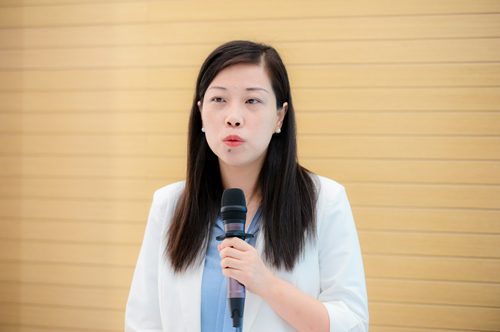
XIA Qian: In recent years, China has provided practical assistance to other developing countries in addressing climate change through South-South cooperation. To date, China has signed 52 climate change cooperation documents with 42 developing countries, doing its best to help these countries enhance their response to climate change through the construction of low-carbon demonstration zones and the implementation of climate change mitigation and adaptation projects. In terms of capacity-building training, China has organized a total of 62 South-South cooperation training seminars on climate change that cover a diverse range of themes and contents, benefiting about 2,400 officials and technicians in the field of climate change from more than 120 developing countries. We hope that all the participants will make the most of this training, gaining knowledge and experience to play an active part in your country's efforts to address climate change.
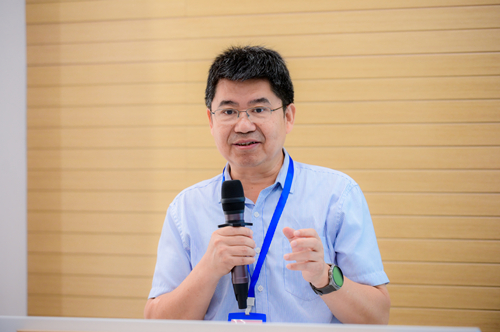
LIU Dehua: At present, climate change has become a prominent challenge for the international community, with profound implications for the future of humanity. Addressing climate change requires international cooperation. In April 2010, the China-Brazil Center for Climate Change and Energy Technology Innovation was established to conduct joint research on clean energy and tackling climate change. So far, we have organized many South-South cooperation training seminars on climate change, accumulating rich experience along the way. This training will cover topics such as green and low-carbon development, and climate financing. I wish all the participants a pleasant and fruitful stay in China.
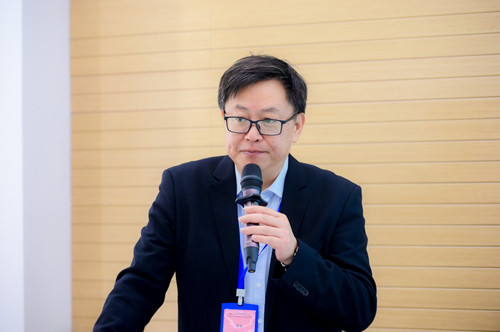
ZHOU Jian: The 2024 Summit of the Forum on China-Africa Cooperation (FOCAC) will take place in Beijing on 4 September, themed "Joining Hands to Advance Modernization and Build a High-Level China-Africa Community with a Shared Future." In alignment with this pivotal summit, the seminar is poised to enhance scientific exchanges and climate cooperation between China and BRI countries. It is also designed to foster innovation in renewable energy, advance green energy infrastructure, and bolster climate finance initiatives across BRI countries. By working in concert, these efforts aim to address the pressing global challenge of climate change, demonstrating a shared commitment to sustainable development and environmental stewardship. The outcomes of the seminar are expected to pave the way for mutually beneficial collaborations between China and Africa, contributing to the global agenda for a greener and more sustainable future.

Wissarut Muangpluem: A bit about myself—my journey in climate finance began on last August. It’s new role for me. The training we are about to undertake is vital in equipping us with the knowledge and skills needed to navigate the complex landscape of climate financing. As we delve into topics such as strategies and policies of climate change, international technologies and cooperation, carbon pricing mechanism and experience sharing, we are not just learning new concepts; we are building the capacity to drive meaningful change and contribute to a more sustainable future.
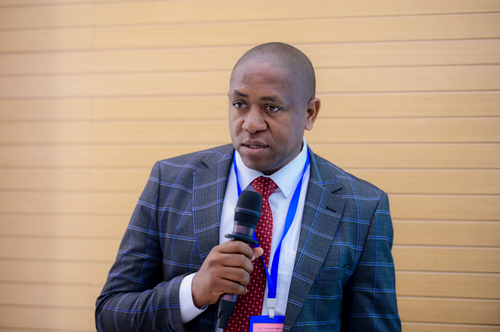
Samuel Akiki Babito: This training opportunities under South-South cooperation program will create a pool of change agents to address climate change adverse effects by effectively applying the knowledge gained to effectively mitigate and adapt to climate changes. The training in climate financing is timely as developing countries start exploring on all possible ways of financing both mitigation and adaptation efforts in addressing climate change consequences. It will also help expose the participants to various climate financing options, the possible carbon markets to be tapped and guide on how to access the existing climate financing for sustainable development.
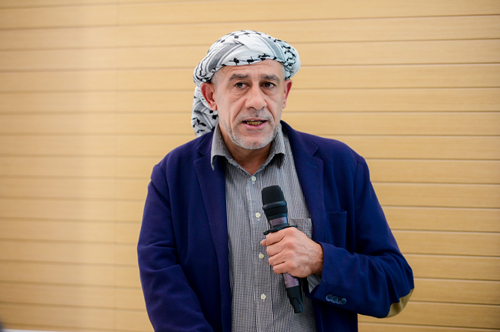
Zeyad Abdallah Dheif Allah Abuagoulah: We are here to explore one of the most important challenges facing humanity, climate change, although I am convinced, especially since we all come from developing countries, that we as developing countries do not have that influence in mitigating climate change, so it is more effective to gain experience and learn about effective adapting tools to climate change. We will emerge from this session by reviewing the policies, measures, procedures and achievements of the Chinese government in a comprehensive and accurate manner in building climate change policies and sharing China’s role in the global climate change mitigation.
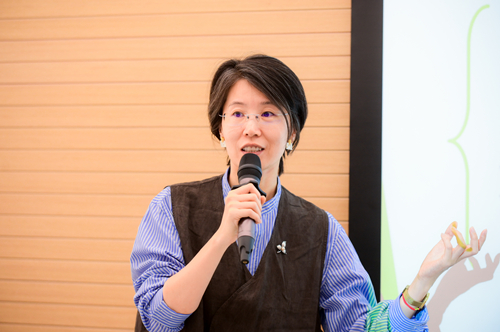
ZHOU Lingling:In the upcoming two weeks, the training program will be held in Beijing and Wuxi, featuring five core modules of PTPAE: China's policies of climate change, international technology transfer, carbon pricing mechanism, domestic actions and international experience. The seminar will focus on China's low-carbon development policies and actions, China’s pathway to energy transition, the application of low-carbon technologies, international cooperation on technology transfer, carbon pricing mechanism, and climate financing. The training also includes site visits and cultural experiences.
